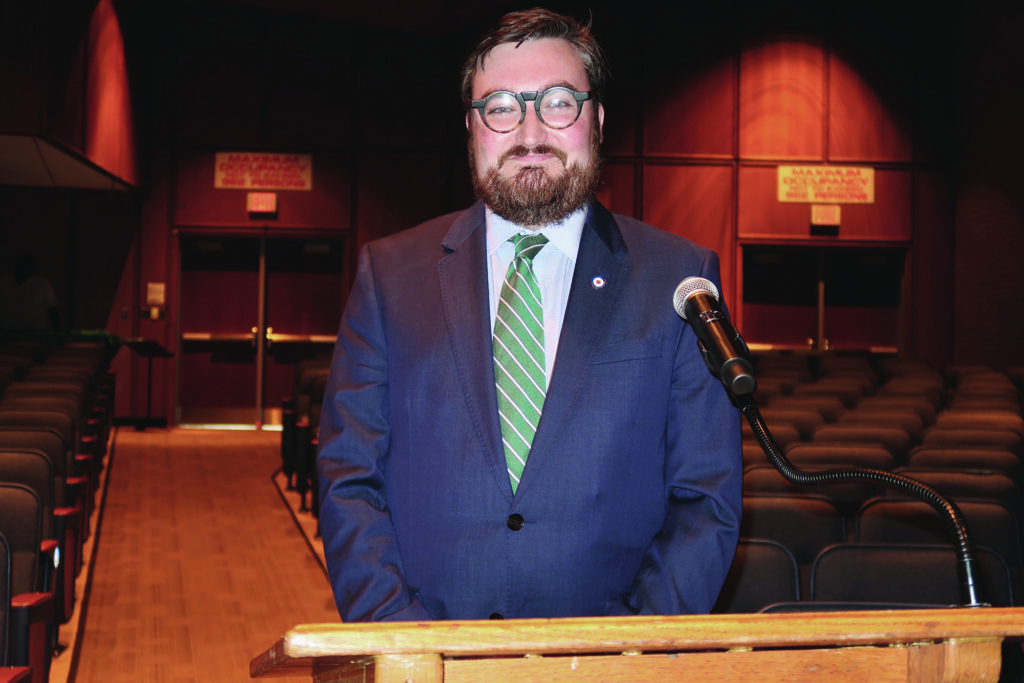Column: When farmers fought nuclear power, and won

When a well-wisher offered him a premature birthday greeting, Robbie Hartmann, who began his 88th year Saturday, responded good-naturedly with a cautionary note. “I didn’t make it yet,” he said, prompting a chuckle. “You never know.”
LOL. True enough.
Mr. Hartmann and some farming friends found that out five decades ago when they took on a corporate giant — and won. The odds may have seemed staggering, but three determined East End farmers — Cliff Foster, Bill Nohejl and Mr. Hartmann — joined forces with a determined attorney, Tom Twomey, to fight the Long Island Lighting Company’s plan to set up a string of nuclear power plants along Long Island Sound, from Wading River across the North Fork and the South Fork as well.
The underdogs won. Nuclear power was turned away.
To the anti-nuclear faction, those four men could be considered agricultural/environmental heroes. All of them have since passed on, except for Mr. Hartmann. He’s the last one standing.
It wasn’t that Mr. Hartmann, vice president of the Riverhead-based Long Island Cauliflower Association and retired from farming, chose farming so much as farming chose him. He was born on his family’s farm in Plainview. Mr. Hartmann represents the fourth generation of farmers in his family in this country ever since his great-grandfather emigrated from Germany. He lives in the same Riverhead house he moved to in 1967 when he began farming about 450 acres, growing mostly potatoes among other crops such as sweet corn and pumpkins. No one has to tell him that farming is hard work.
“Oh man,” he said. “With me, I used to be irrigating all summer here, 24 hours a day. We’d roll seven days a week if it was needed.”
More hard work came his way when hearings were held concerning LILCO’s plans to lay power lines for proposed nuclear plants across Riverhead and North Fork farms.
Mr. Hartmann, the Long Island Farm Bureau vice president at the time, didn’t like what he was hearing. Nor did Mr. Foster, the LIFB president at the time. Nor did Mr. Nohejl.
“The more we investigated, the more we disliked it,” Mr. Hartmann said. “If there was any trouble with those power plants, if they would go on fire or something, it [would] wipe the whole area out here. There was no way for the people to escape. How many can get away on a boat? How many can get down to the Long Island Expressway? And it would have ruined the whole area here forever. Farms would be wiped out.”
The LIFB sought an environmental lawyer to take up its cause in 1974 and found Mr. Twomey, fresh out of law school with a broken ankle from skiing. It was a game-changing hire.
Mr. Twomey recounted the battle against LILCO, which was initially looking to erect two nuclear reactors in Northville (which the state referred to as Jamesport), in a 2011 guest column he wrote for the Riverhead News-Review and The Suffolk Times.
“After 80 full days of hearings and the testimony of dozens of expert economic, scientific, and engineering consultants hired by the Farm Bureau, we defeated LILCO’s plans to build a ‘Nuclear Power Park’ of 19 — yes, 19 — nuclear plants around the East End from Wading River east to Orient on the North Fork, and then from Westhampton east to Montauk on the South Fork,” Mr. Twomey wrote.
“Fortunately for us on eastern Long Island, the farmers refused to back down,” he continued. “They took on the industry. In a ferocious eight-year legal dogfight, the farmers argued it made no sense that the biggest machine ever made by man would never have an accident, would never have pumps fail, would never overheat.”
While the legal battle raged, Mr. Hartmann recalled, he essentially had a second job. He figures he spent seven days a week for seven years conducting business related to the struggle. Money was raised — hundreds of thousands of dollars, he said — for legal fees. He found himself serving as a speaker, addressing graduating classes and clubs about the matter.
“Christ, I’m a farmer; I was never a public speaker, but I tell you, I got to be where I didn’t do too bad,” he said. “It took some practice, but if you believe in what you’re fighting for and saying, it comes a little bit easier.”
Mr. Nohejl’s son, Bill Nohejl Jr., in a phone interview from his Port St. Lucie, Fla., home, said, “It just went on and on and on, and they investigated more and it just became more ridiculous, and they had to cut it off at the knees.”
Karl Grossman, in a 2014 column for the Riverhead News-Review and The Suffolk Times, wrote that it was Mr. Twomey who put the matter to rest with a “gutsy personal visit” to then Gov. Hugh Carey. Mr. Twomey rushed to Albany to alert Mr. Carey that a state board was about to OK the Northville nuclear plants, prompting the governor to follow through on an election pledge and see to it that it didn’t happen, according to Mr. Grossman.
One can only imagine how the landscape might look had things turned out differently.
Mr. Twomey, who also played a role in decommissioning the Shoreham Nuclear Power Plant, wrote, “It was a close call.”
“I don’t think of it too much any more because a lot of time has passed and there’s all kinds of other problems facing me,” Mr. Hartmann said. “You can’t keep looking back.”
Is he proud of the part he played in that fight?
“Oh, I’m very proud of it,” he said. “I mean, all them people told us, ‘You’ll never get anywhere, you’re fighting city hall.’ … We always thought we were doing the right thing, and history has proved us right.”








